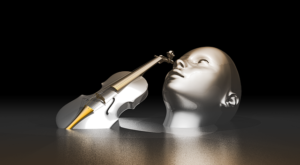Bilateral Tinnitus: Symptoms, Causes, Treatment – Healthline
Tinnitus is the perception of sound that has no external cause. This condition is often referred to as ringing in the ears, but tinnitus can cause a variety of sounds, like roaring or buzzing. When tinnitus affects both ears, it is called bilateral tinnitus.
In this article, we’ll go over the symptoms of bilateral tinnitus. We’ll also discuss potential causes and risk factors for this condition, as well as diagnosis and treatment.
Tinnitus is a common condition that affects ar…….

Tinnitus is the perception of sound that has no external cause. This condition is often referred to as ringing in the ears, but tinnitus can cause a variety of sounds, like roaring or buzzing. When tinnitus affects both ears, it is called bilateral tinnitus.
In this article, we’ll go over the symptoms of bilateral tinnitus. We’ll also discuss potential causes and risk factors for this condition, as well as diagnosis and treatment.
Tinnitus is a common condition that affects around 10 percent of the population. It can affect one or both ears. Tinnitus that affects both ears is bilateral tinnitus. Tinnitus that affects one ear is unilateral tinnitus.
There are several types of tinnitus that can be bilateral:
- Subjective. Subjective tinnitus is the most common type. Only you can hear the noise in your ears, and it’s not related to external sounds.
- Objective. For this type of tinnitus, the noise can be heard by others through a stethoscope or microphone.
- Pulsatile. The tinnitus noise for this type is rhythmic and in sync with your heartbeat.
- Muscular. This tinnitus noise is rhythmic and caused by irregular contractions or spasms of muscles in or near the ear.
Tinnitus is derived from the Latin word tinnire, which means to ring. Tinnitus is commonly referred to as ringing in the ears, but the sounds caused by tinnitus vary and can include:
- roaring
- ringing
- hissing
- whistling
- buzzing
- clicking
- whooshing
- crickets
- chirping
If you have bilateral tinnitus, you will hear sounds in both ears. Tinnitus sounds can be soft or loud. They can also vary and fluctuate in pitch and loudness.
Tinnitus sounds may be continuous and without end, or they can come and go.
Tinnitus can be difficult to live with. For that reason, additional symptoms of bilateral tinnitus include anxiety, insomnia, and depression.
Tinnitus symptoms that may indicate an underlying cause
Some tinnitus symptoms are associated with specific underlying causes:
- When tinnitus is accompanied by symptoms such as ear pain or drainage, the underlying cause may be a sinus or ear infection or a cholesteatoma.
- When tinnitus is accompanied by dizziness, the underlying cause may be a neurological problem or Meniere’s disease.
According to the American Tinnitus Association, tinnitus is not a disease but instead a symptom of an underlying condition. There are approximately 200 health disorders or conditions that can have bilateral tinnitus as a symptom.
…….
Source: https://www.healthline.com/health/bilateral-tinnitus







